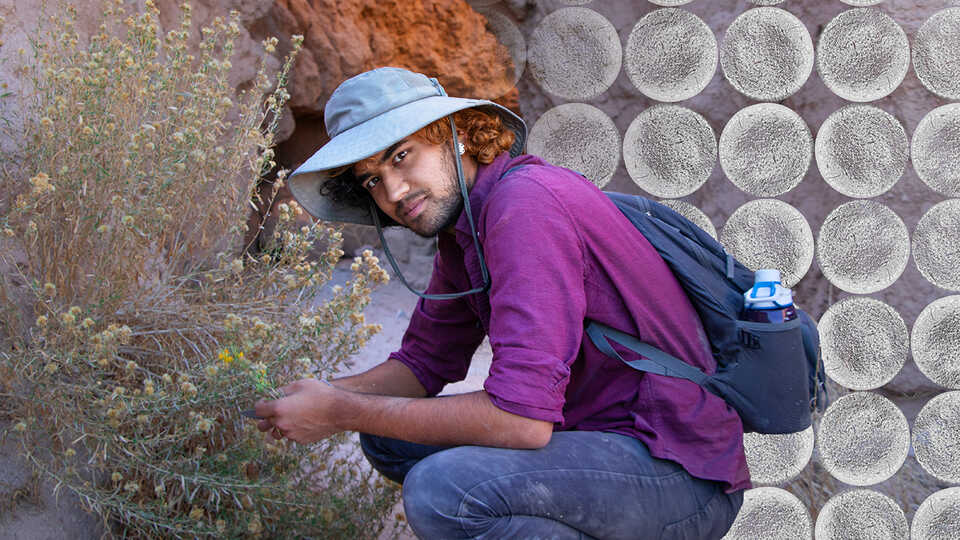
Kunal's Story (they/them)
Growing up, I cried a lot. I would get mad, stomp around the house, slam doors, and be the moody, misunderstood, middle child I was destined to be. I still am. I was taught to compartmentalize my identities, to hate myself, and to ruminate on trauma. But I strive to relate to myself, communities, ecologies, and spirits in ways centered on joy. And the Earth, specifically soil, has taught me the most about centering joy.
Complex relationships to the environment guide my career in STEMM. I am not separate from nature; I am an extension of the environments that raised me. Of the grandparents and air in New York City, the yards and allergies in Jersey, the vegetables and isolation in Vermont, the data and dust in Arizona. I am often misunderstood by the dominant paradigms which do not connect to my sad, brown, queer, earthy, trans self, but I’ve always found solace in the soil.
At the Frelinghuysen Arboretum, on unceded lands of the Lenape (New Jersey), I could kneel in dark, carbon-rich ground, pulling potato weed and planting calendula. These gardens are where I had some of my first lessons from the Earth. Soil taught me about my own queerness, my crushes on the other volunteers. Soil taught me about community care, the way we would gossip and make each other laugh underneath the maples, finding refuge in our unspoken queerness and brownness. Soil taught me about living—the gardens are deserving of nourishment, water, life, and love; so am I.
With these lessons in my heart, I moved to Abenaki lands (Vermont) for college, and was affronted by colonial and racist ways of knowing, eco-fascist frameworks of ecological succession, and soil as a thing to extract. I never quite fit in as one of a handful of BIPOC in my school, always raising issues of inequity and community care to hostile minds. Gardening with my friends, again, became my solace. On the hill behind University Heights South, we built ten garden beds out of Japanese Larch harvested from dying trees in the Jericho Woods. We made spreadsheets, turned over the soil, and all our clothes became gardening clothes, even my white Kirkland Signature dad sneaks! These gardens protected me from the trauma of Vermont and gave me space to be in queer love with the dirt.
And then I moved across the country to occupied Tohono O’odham and Pascua Yaqui Lands (Tucson, AZ) to work with environmental justice communities studying pollution. I still work with gardens, but now analyze the soil, rainwater, kale, and cactus for metals, trying to understand what is safe. Project Harvest is a co-created, community-based research project that integrates sense of place, environmental monitoring, and health literacy to address injustice. I finally feel like my relationship to soil and queerness are valued and important to my work. By studying the ground, I am actually studying myself. By studying the ground in a justice-based way, I honor the Earth and myself.
Explore New Science anywhere through our virtual Google Arts & Culture exhibit, or see our new, in-person exhibit on your next Academy visit.
To learn more about the partners that helped make New Science possible, visit: